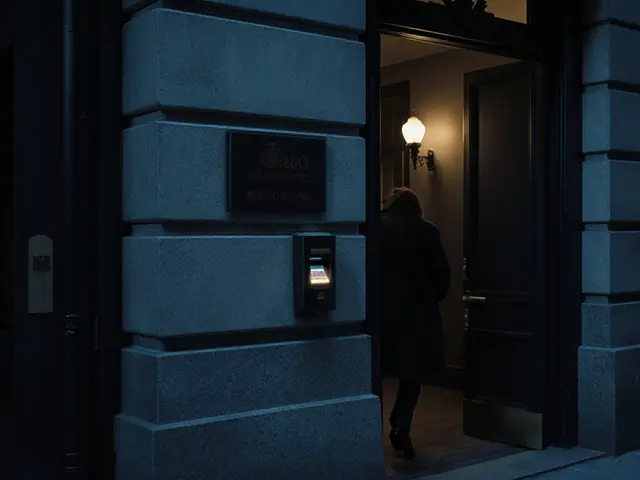Key Takeaways
- The stigma around escort services in London is driven by outdated myths, media bias, and legal ambiguities.
- Understanding the legal framework helps separate criminal activity from consensual adult work.
- Positive media narratives and open community dialogue can shift public opinion.
- Providers benefit from safety tools, privacy protections, and professional standards.
- Clients and providers alike can play a role in normalising respectful, consensual escort interactions.
When we talk about London escort services a segment of the adult industry that offers companionship, social outings, and intimate experiences to consenting adults in the capital city, most people immediately picture seedy streets or illegal activity. The reality is far more nuanced, and the prevailing stigma often blocks honest discussion, safe practices, and professional growth. This guide breaks down why the stigma exists, how the law shapes perceptions, and-most importantly-what concrete actions individuals and the community can take to move past judgment.
Understanding the Root of the Stigma
Stigma isn’t just a feeling; it’s a social mechanism that labels a group as “deviant.” Stigma the collective negative attitude and discrimination toward a particular activity or group around escort work has historical roots in Victorian morality, religious doctrines, and early 20th‑century anti‑vice campaigns. Those old narratives still echo in everyday conversations, influencing everything from casual jokes to policy debates.
Three main myths keep the stigma alive:
- “All escorts are trafficked victims.” While trafficking is a serious problem that demands action, studies by the Home Office in 2023 show that the majority of adult workers in the UK operate voluntarily.
- “Escorting equals prostitution.” The legal definition of prostitution in England and Wales focuses on the exchange of sexual services for money. Many escorts provide companionship, conversation, or non‑sexual experiences, which fall outside that statutory definition.
- “Clients are immoral.” Surveys from the University of Westminster (2022) reveal that over 70% of clients view escort encounters as a consensual service, similar to hiring a personal trainer or event planner.
Debunking these myths starts with data, empathy, and clear language.
Legal Landscape and Its Impact
The UK’s Sex work legislation the set of laws governing prostitution, solicitation, and related activities across England and Wales is a patchwork of statutes and local bylaws. In London, street solicitation is illegal, but working from a private residence or a licensed venue is not a criminal offense. The Policing and Crime Act 2017 introduced “client‑focused” measures, targeting the buyer rather than the provider, which has shifted public dialogue slightly toward protecting workers.
Key legal points that affect stigma:
- Engaging in “kerb‑crawling” is a criminal offence, yet many escort agencies operate entirely online, blurring the line for the public.
- Safety‑related legislation, such as the Domestic Abuse Act 2021, now recognises forced sexual labour as a form of abuse, giving survivors clearer routes to support.
- Local council regulations on advertising (e.g., the London Borough of Camden’s “no adult service ads” rule) create visible barriers that reinforce the notion of secrecy.
Understanding these nuances helps separate criminal behaviour from legitimate adult work, reducing blanket condemnation.

How Media Shapes Perception
Television dramas, tabloid headlines, and even popular music often portray escort work as a dark underworld. Media portrayal the representation of escort services in news, entertainment, and social platforms tends to focus on sensational stories-scandals, arrests, or elite “sugar‑daddy” narratives-while ignoring everyday professionalism.
Recent positive shifts include documentaries like “London’s Hidden Hospitality” (BBC, 2024) that interview actual providers, showcasing their boundaries, consent practices, and emphasis on safety. Social media influencers in the “lifestyle” niche also share vetted resources, normalising the conversation.
When media frames escort work as a legitimate service, public opinion follows. Encouraging responsible reporting and featuring real voices can chip away at the stigma.
Real Experiences: Clients and Providers
From the provider’s side, Provider safety the set of measures and protocols escort workers use to protect themselves physically and digitally is paramount. Many agencies now offer verification, location‑sharing apps, and emergency check‑ins. According to a 2023 survey by the UK Adult Workers Union, 84% of respondents felt safer using an agency that employed a “safety‑first” policy.
On the client end, Client experience the expectations and interactions a buyer has when engaging with an escort service is often built around discretion, respect, and clear communication. Websites now include detailed profiles, consent guidelines, and rating systems, mirroring platforms like Airbnb.
Anecdote: Emma, a 32‑year‑old software engineer, booked a “GFE” (girlfriend experience) escort for a dinner date before a job interview. She praised the provider’s professionalism, noting how the pre‑meeting briefing helped set boundaries and eased her nerves. Stories like Emma’s show that when both parties act responsibly, the interaction is no more “shameful” than hiring a private chef.
Practical Steps to Overcome Stigma
Changing perception isn’t a one‑off event; it requires coordinated actions:
- Education campaigns - Partner with local universities to host workshops on consent, labour rights, and the difference between escort work and trafficking.
- Transparent advertising - Encourage agencies to use clear, non‑euphemistic language on their websites, making the service visible without resorting to coded ads.
- Community dialogues - Organise town‑hall meetings in boroughs like Camden or Southwark where providers, clients, and residents can ask questions in a safe environment.
- Support legal reform - Advocate for decriminalising consensual adult work, following the Nordic Model’s critiques that show criminalisation harms workers more than it helps.
- Promote positive media - Pitch human‑interest stories to local newspapers that focus on entrepreneurship, safety innovations, and personal empowerment.
Each of these steps reinforces the message that escort services are a professional choice, not a moral failing.

Building a Supportive Community
Effective change hinges on a network of allies. Community outreach programs initiatives that connect escort providers with health, legal, and social support resources have sprung up across London, often run by NGOs like “Sex Workers’ Rights London.” They offer free health checks, legal clinics, and peer‑support groups.
Digital platforms also play a role. Digital platforms online websites and apps that list escort services, facilitate bookings, and provide safety tools such as encrypted messaging and verified ID checks improve both safety and professionalism. When users see that the industry invests in technology, the perception shifts from “underground” to “modern service.”
Additionally, respecting Privacy laws the UK GDPR and Data Protection Act provisions that safeguard personal data helps protect clients and providers from unwanted exposure, reducing the fear that fuels stigma.
Tools and Resources for Change
Below is a quick reference that separates myth from fact. Use it when you talk to friends, write a blog post, or prepare a presentation.
| Myth | Fact |
|---|---|
| All escorts are forced into the trade. | Majority work voluntarily; trafficking is a separate crime addressed by law enforcement. |
| Escorting is illegal everywhere in London. | Only street solicitation is illegal; private, consensual arrangements are lawful. |
| Clients are immoral predators. | Most clients view the service as a consensual exchange, akin to hiring any professional. |
| Escort agencies hide behind secrecy. | Many agencies publish verified profiles, safety policies, and transparent pricing online. |
| Talking about the industry spreads disease. | Professional providers often require regular health screenings and use safe‑sex practices. |
For anyone wanting to champion change, start with these resources:
- UK Adult Workers Union - legal advice and advocacy tools.
- Sex Workers’ Rights London - free health clinics and peer groups.
- SafeSpaces app - encrypted chat and location‑share safety feature for providers.
- British Psychological Society - research papers on stigma reduction.
- Local council community grant - funding for public‑education events.
By leveraging data, advocacy, and technology, we can replace shame with respect. The journey won’t be overnight, but each conversation, each policy tweak, and each supportive click moves the needle toward a more informed London.
Frequently Asked Questions
Is hiring an escort illegal in London?
Only certain activities, like street solicitation and demanding sexual services for money in public, are illegal. Private, consensual arrangements that do not involve prostitution are lawful under current UK statutes.
How can I tell if an escort is working voluntarily?
Reputable agencies conduct background checks, provide clear contracts, and allow workers to set their own rates and boundaries. Transparency, the ability to leave at any time, and the presence of safety protocols are good indicators of voluntary work.
What safety measures should a client expect?
Clients should receive a verified profile, clear consent guidelines, and an option to use a secure booking platform that offers location‑sharing and emergency contact features. Respecting boundaries and avoiding alcohol‑induced impairment also enhances safety.
Can I remain anonymous when booking?
Yes. Leading platforms use encrypted communications and allow payment via discreet methods such as digital wallets or prepaid cards, protecting both client and provider identities.
How does stigma affect provider health?
Stigma can lead to delayed medical care, mental‑health strain, and reluctance to seek legal help. Reducing judgment improves access to regular health screenings and support services, thereby enhancing overall well‑being.
By confronting myths, understanding the law, and supporting both providers and clients, London can move from whispered judgment to open, informed dialogue. The shift starts with one honest conversation-maybe yours.
London escort services have the potential to be a respected, safe, and consensual part of the city’s diverse adult economy.




